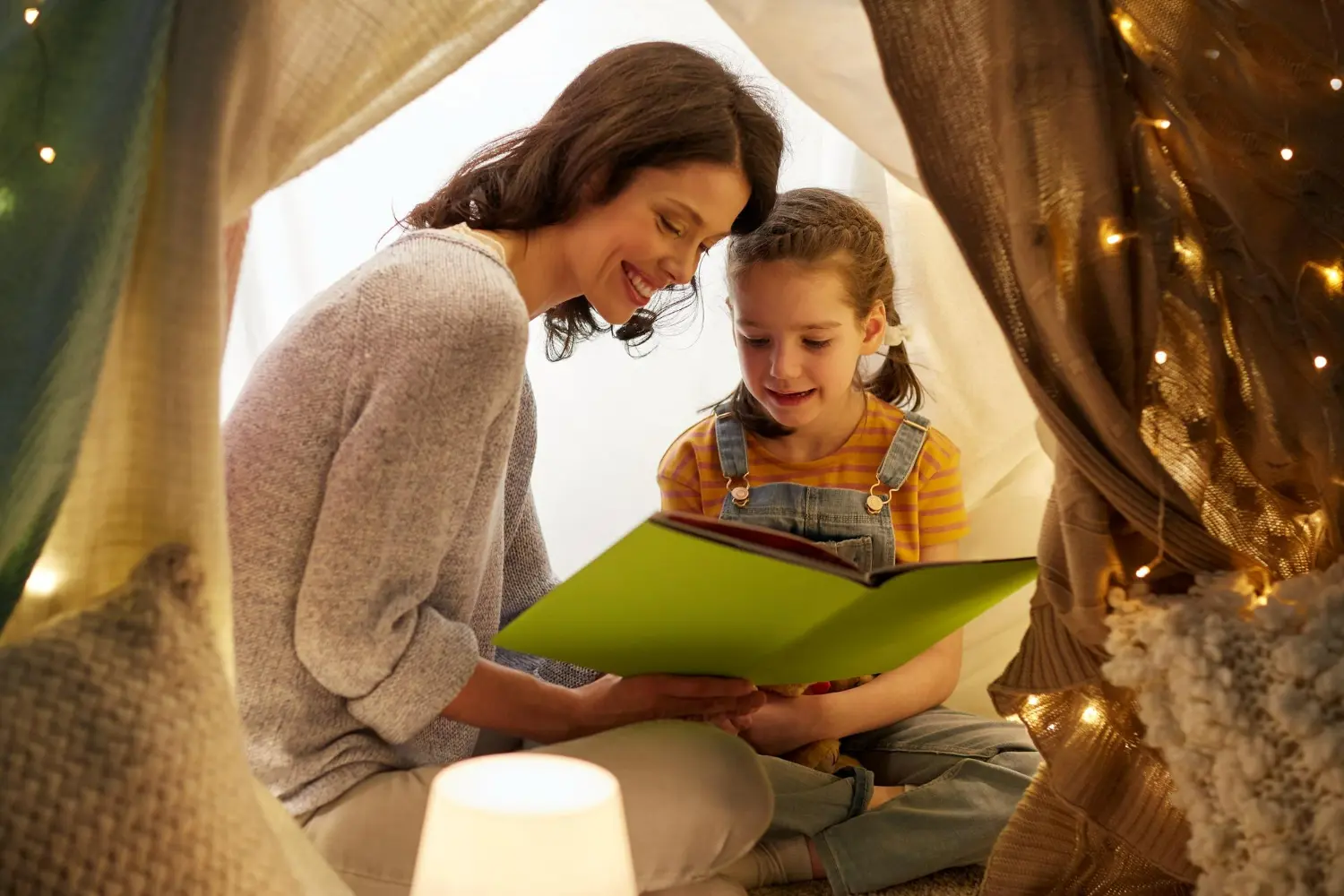
Reading with your child is one of the best ways to support their language development. In fact, research shows that reading aloud to your child from birth helps lay the foundation for strong communication skills. Even though babies don’t understand the words at first, they benefit from hearing your voice and being exposed to language patterns. So how can you make the most of reading time to boost your child’s language skills? Here are some tips:
For babies and toddlers (around 0-3 years old), opt for books with simple, repetitive text, bright, engaging pictures, and sturdy pages (like board books or cloth books). These books help babies and toddlers connect words to images, and repetitive language supports language acquisition. Books like Brown Bear, Brown Bear, What Do You See? are perfect for this age because they have a rhythmic, predictable structure that supports language learning.
As you read with your child, point to and label the objects and actions in the pictures. For example, say, “Look, a dog” or “The dog is running.” For toddlers (around 1-2 years old), this helps them connect words with meanings and builds their vocabulary. For example, “That’s a big, brown dog running fast.” Labeling helps children associate words with real-world objects and actions, supporting their understanding of the world around them.
When your child is around 3 years old and up, start asking open-ended questions like, “What do you think will happen next?” or “How do you think the character feels?” These questions not only help build comprehension skills but also encourage your child to think critically, express themselves, and practice making predictions. This fosters creative thinking and a deeper understanding of the story.
By 3-4 years old, your child will begin developing storytelling skills. Encourage them to retell parts of the story or describe the pictures in their own words. Even younger toddlers (around 2 years old) can identify key events in simple stories. These activities support language development by helping them learn story structure, sequencing, and cause-and-effect relationships.
If your child says something like, “Dog,” you can expand by saying, “Yes, that’s a big dog with a fluffy tail.” Expanding on your child’s language helps them learn new words, improve their
grammar, and understand how to form more complex sentences. This simple strategy helps children develop richer language and more expressive communication skills.
For preschoolers (around 3-5 years old), point to the words as you read. This helps connect spoken language with written words, an essential skill for reading. Encouraging your child to recognize familiar words or letters in the book builds early literacy skills and prepares them for reading independently. You can also point out signs, labels, and other print in the environment to further reinforce print awareness.
Young children, especially babies and toddlers, love repetition. Don’t be afraid to read the same book over and over again. It helps reinforce vocabulary and language patterns, makes children feel more confident, and helps them anticipate what happens next in the story. Even older kids enjoy revisiting their favorite stories—it supports comprehension and helps them become more engaged with the text.
Every child is unique, so it’s important to follow their interests and developmental stage. For younger children (around 1-3 years old), focus on simple books with pictures and labels. As your child gets older (around 3-5 years old), you can dive deeper into discussions about characters, plot, and emotions in the story. Following your child’s lead ensures that reading remains fun, engaging, and supportive of both language development and critical thinking skills.
Reading with your child is one of the most valuable ways to support their language skills. By labeling objects, asking open-ended questions, expanding on their language, and making reading time fun and interactive, you’re giving your child the tools they need to become a strong communicator. No matter your child’s age, reading together is a wonderful way to bond and set the stage for a lifetime of learning!
